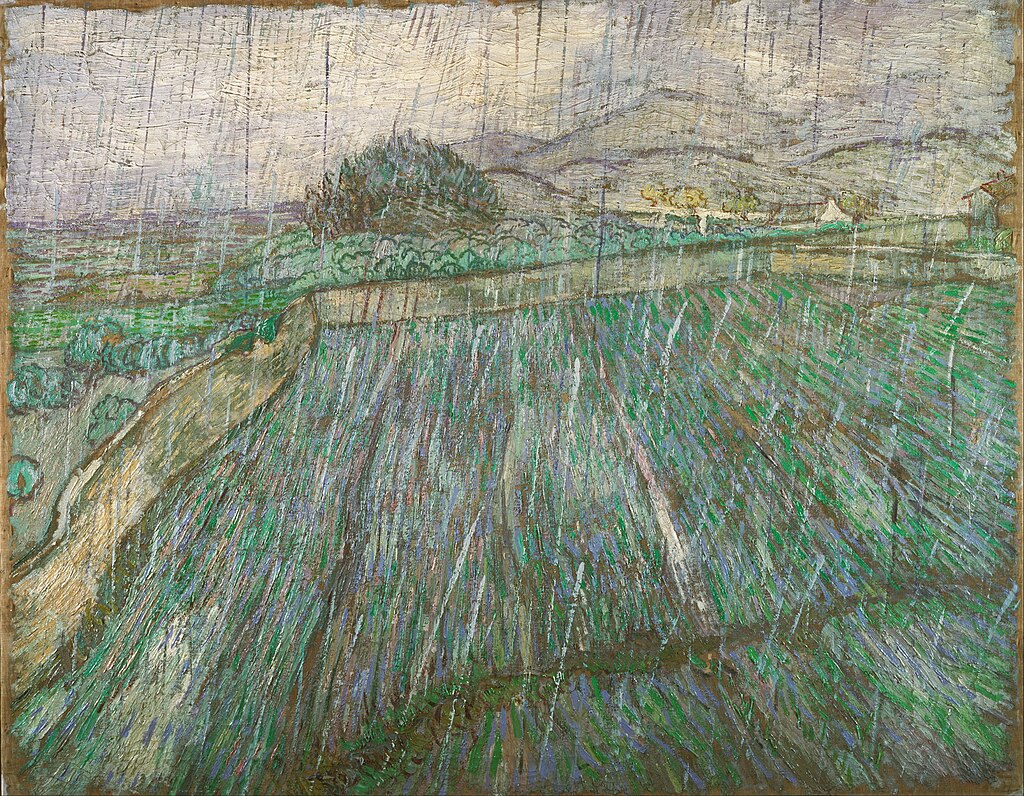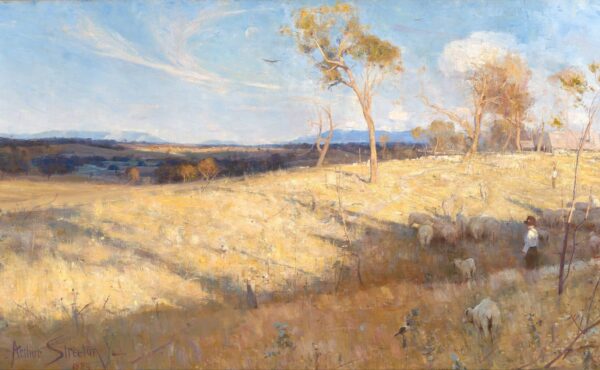Whan that Aprille with his shoures soote,
The droghte of March hath perced to the roote,
And bathed every veyne in swich licóur
Of which vertú engendred is the flour;
Canterbury Tales – Geoffrey Chaucer
Six hundred years since the writing of Canterbury Tales and halfway around the world (on the western edge of Australia no less), April is also the month when my mind turns to the possibility of rain. I say the possibility of rain for, in my hot and dry climate, there is no guarantee of April rain. Rain may come in April, or it may hesitate until May. On particularly unlucky years, June is the month in which our first winter fronts surge up from the roaring forties of the Southern Ocean to bring green grasses to the brown and dead paddocks.
My climate, as the media and water authorities are fond of repeating, is a drying climate. Nor did the climate start particularly damp. While historical rainfall figures for my particular patch of land are scarce, I get by on the assumption that on an average year I might expect 400mm of rain (that’s a smaller number in inches for American readers). Almost all of that rain will be falling in the winter and early spring months. From December through to the end of March it is not uncommon for no rain to have fallen at all. By April therefore the water tanks are getting low, the feed is scarce on the ground, the bore has slowed to a trickle, and my mind has turned very firmly to the possibility of coming rain.
There is nothing like waiting for rain to sharpen a feeling of utter dependence. But modernity has been highly effective at anaesthetising such emotions. Dams, scheme water, desalinisation and global supply chains have removed, or at least mitigated, the consequences of drought from most developed economies. Even my own particular circumstances[1] benefit from the safety net of trucking in water if needed.
This ingenuity is doubtless a good thing. We ought to steward the gift of water such that waste is minimised and distribution optimised. And yet we have certainly reached a point where the availability of abundant water is taken for granted by most people. For most Western Australians the weather, more often than not, is a matter of taste or convenience. And yet, at a base level, the vast bulk of our society rests on a foundation of water droplets falling from the sky, a foundation that we neither created nor control.
Of course, this resistance towards acknowledging our dependence runs deeper in our culture than where we get our water from. In politics our language of inalienable rights ignores the truth that the freedom of individuals is ultimately afforded by, and dependent on, the community that surrounds them. Much of our welfare programs obsecrate the reality that their recipients are solely dependent on the financial support of their communities. In Australia, compulsory superannuation promises to free the elderly and retired from dependence on their children, at least while their physical and mental faculties remain. Indeed, much of the language surrounding the passage of recent euthanasia laws advocate freedom from dependence exactly when the frailties of age or disease makes acknowledgement of a dependence unavoidable.
Our culture then is particularly adept at suppressing feelings of dependence. This pairs nicely with worship of the god of progress who promises to remove any remaining or future dependence we might have on our environment or (worse) each other. Yet our dependence has not actually been removed only denied, distanced, and displaced onto less developed countries who in our global economy will be the first to feel the sting of any food or water scarcity.
If this cultural response to suppress feelings of dependence is misplaced, how then should we respond? To genuinely acknowledge our dependence on our environment and each other, is to be left with two responses, fatalism and despair or prayer and worship. For me, rain (or its lack) is a seasonal reminder of this choice.
I will return briefly to the matter of the drying climate in my region of the world. In the Twentieth Century the 1960s marked the highwater point for rain in the southern half of Western Australia, so much so that the drainage basins of rivers needed to be redrawn as, for the first time since European settlement, lakes fed their overflow into rivers hundred of kilometres away. It just so happens that the population of the farming regions of Western Australia also peaked in the 1960s with many of these people migrating from Christian Europe to the far more arid lands of Australia. I suspect that more than a few of these migrants prayed for rain.
In April the land around me is stripped of its vegetation and the ground of its moisture. So too (for a least moment) is my mind stripped of its confidence in human systems and my soul of its denial of my dependence and I am moved to pray.
*****
Can any idols of the nations bring rain?
Or can the heavens give showers?
Is it not you, O Lord our God?
We set our hope on you,
for it is you who do all this.
Jeremiah 14:22
[1] https://dawsonsociety.org.au/2024/04/on-the-harvesting-rainwater/

